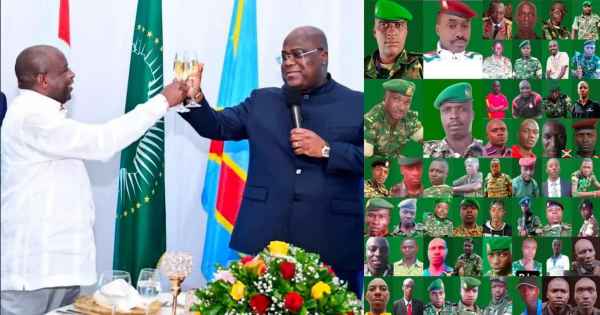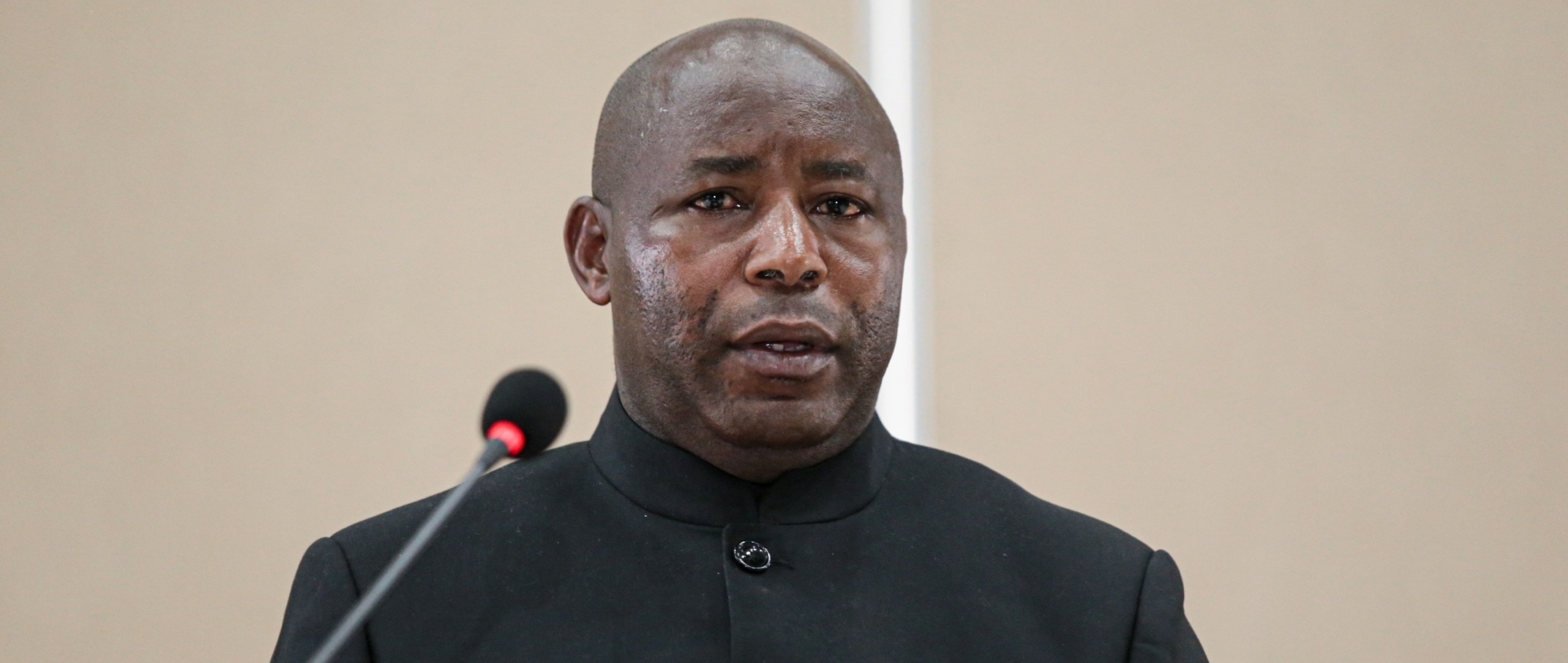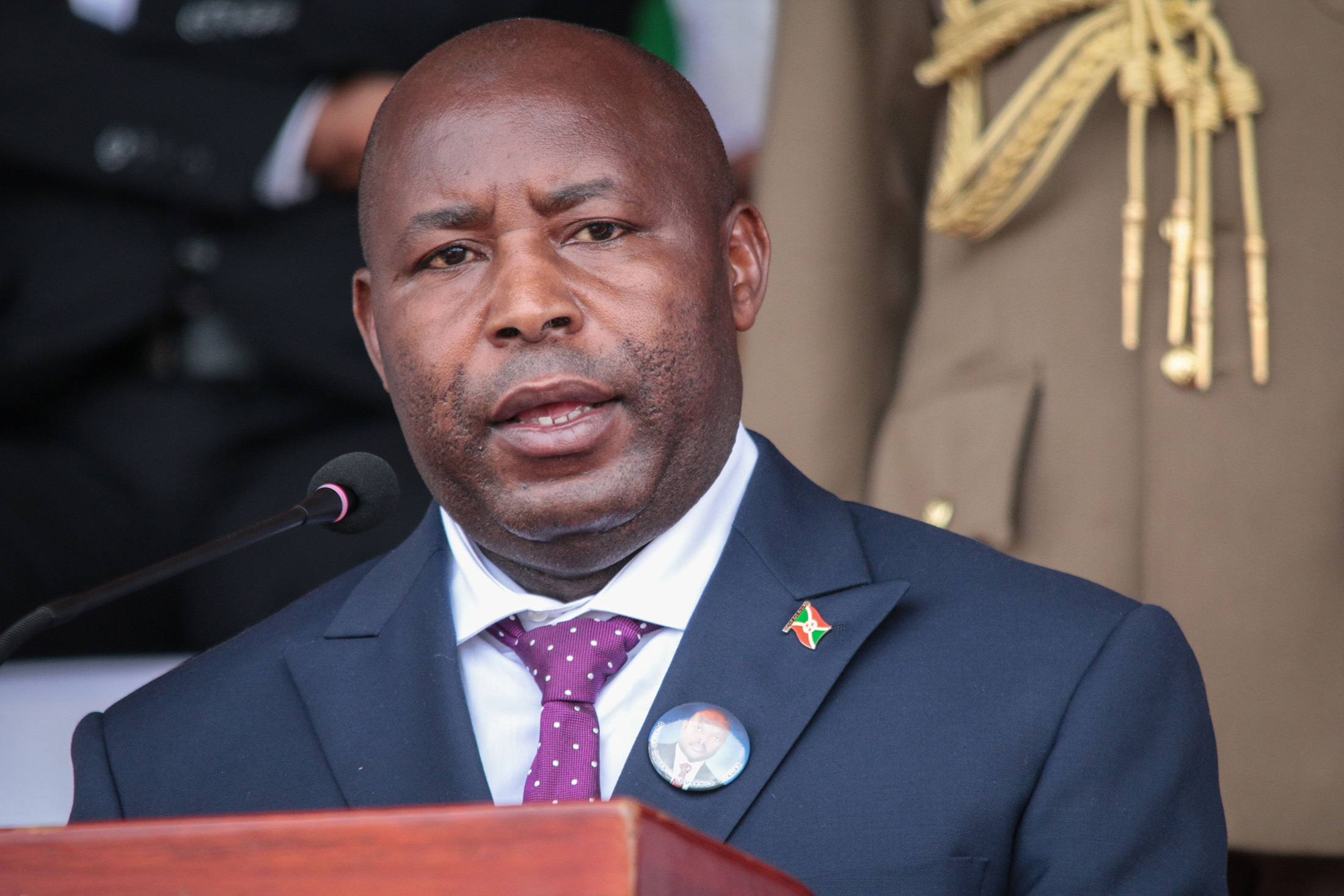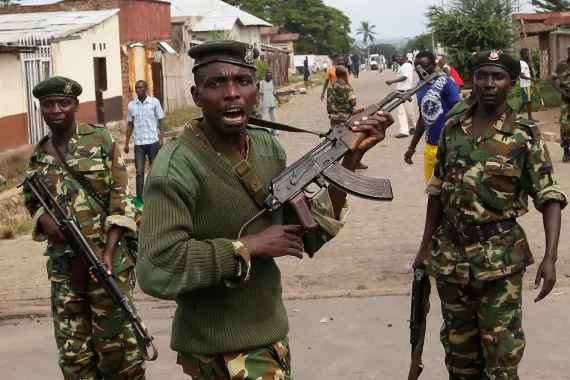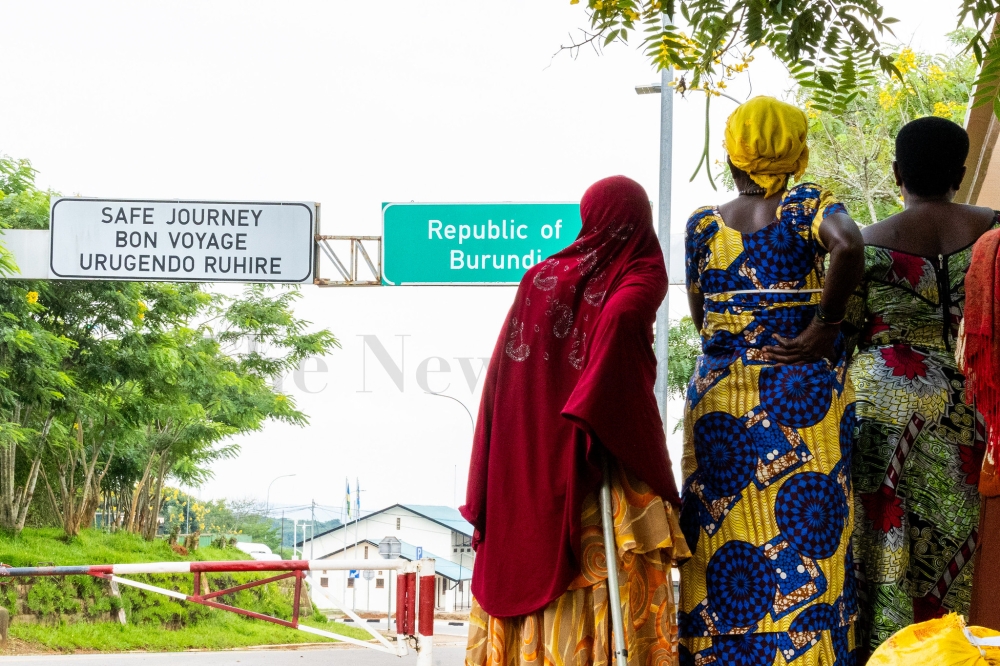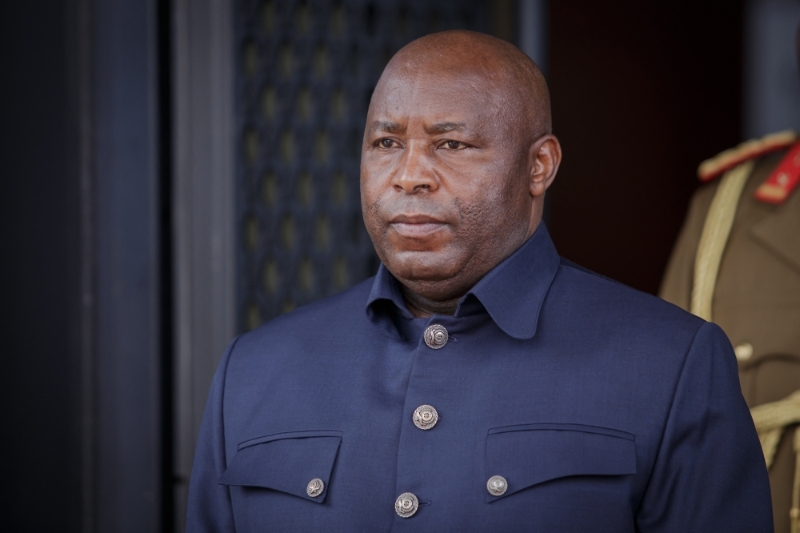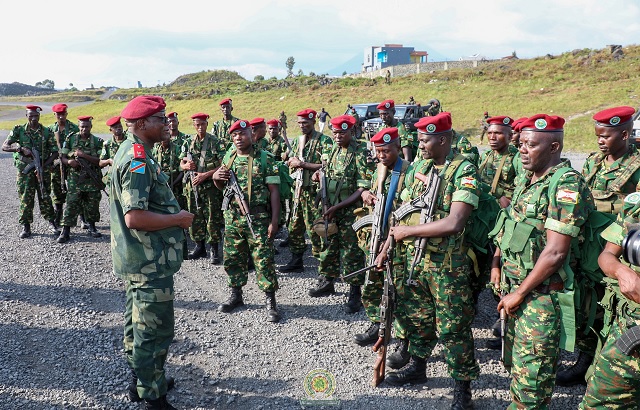International
Ramaphosa, Tshisekedi, Ndayishimiye turned Namibian President’s funeral into political platform to plot against M23
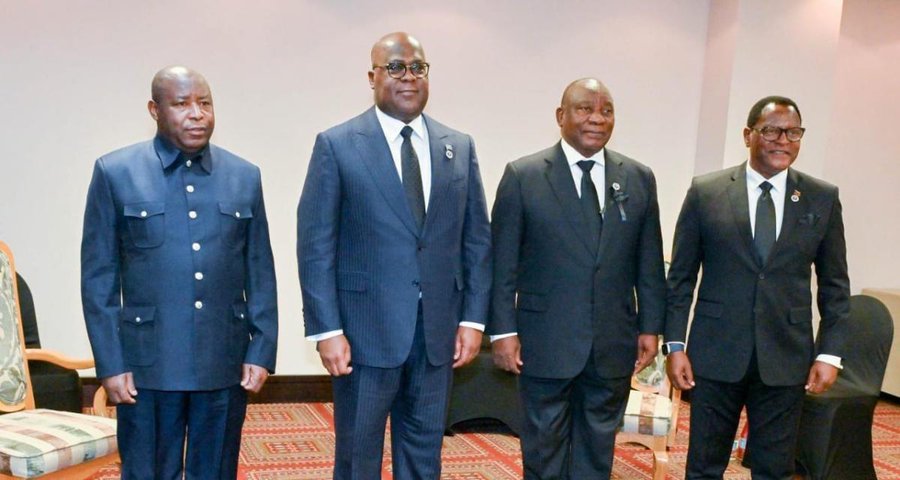
During
their stay in Namibia on the occasion of the state funeral of former Namibian
President Hage Geingob, on February 25, South Africa’s Cyril Ramaphosa, DRC’s
Felix Tshisekedi, and Burundi’s Evariste Ndayishimiye, managed to meet and plan
for another move in their grand plot of fighting the M23 rebels.
The
trio also invited Malawi’s Lazarus Chakwera and Tanzania’s Samia Suluhu. The
latter did not attend.
The
Burundian Presidency posted on X (former Twitter) that the Heads of State
“discussed issues of common interest, including their contribution to the
building of peace and security, especially as their countries are all troop
contributors in DRC.”
The
South African Presidency posted on X that the meeting continued from an
engagement between the Heads of State that took place in Addis Ababa on the
margins of the recently held African Union Summit. It added that the leaders,
whose countries have contributed troops to the Southern African Development
Community (SADC) mission to DRC, abbreviated as SAMIDRC, discussed “the
restoration of peace and security in the eastern DRC.”
The
troop deployment of troops by Burundi and SADC to eastern DRC is known to be a
decision motivated by economic gain rather than saving threatened lives of
millions of Congolese. Holding a meeting on the occasion of a funeral service
emphasized that the presidents’ plot is savage, not a humanitarian one which
would lead to peace.
It is
safe to say that the Heads of State did not travel to Namibia for the mourning
of the late Geingob. They used Namibia’s state funeral as an opportunity to
continue plotting against M23 rebels who are fighting to stop discrimination
and historical injustice. The act by these presidents is cynical and lacks
moral values.
How
will they bring peace in eastern DRC, if they cannot even honor their late
counterpart?
The
behavior of the four Heads of State not only embarrassed their home countries,
but also the host country as well as the whole continent.
Funerals are somber occasions that demand a
delicate balance of respect, empathy, and understanding. They serve as a final
farewell to a loved one and provide an opportunity for the grieving process to
begin.
Proper
funeral etiquette ensures these gatherings remain dignified and respectful,
offering solace to the bereaved. Things to avoid during funerals include
refraining from promoting any kind of personal agenda during the solemn time.
A
funeral is not an appropriate venue to promote personal beliefs, causes, or
political agendas. Mourners should focus on the deceased and their family, and
nothing else. But the four presidents did the opposite. And it was no surprise,
anyway.
Sources
from Windhoek, the capital of Namibia, said that some Heads of State from the
SADC declined to participate in the meeting, citing the inaptness of its
timing. And they were right, and respectful.
Since
December 2023, SADC started deploying a mission to DRC purportedly to assist
the Congolese government in restoring peace and security in the eastern part of
the country.
South
Africa, Malawi, and Tanzania, are the only countries that agreed to send troops
in the name of the bloc comprising 16 Member States. But only South Africa has
been pulling at all the stops to ensure that the mission is successful.
Ramaphosa
authorized the deployment of 2,900 additional South African soldiers in
addition to another 580 initially sent by the SADC bloc to eastern DRC, to help
the Congolese army, FARDC, hoping to finish off the M23 rebel group which is
fighting to protect the rights of Kinyarwanda-speaking Congolese citizens who
are persecuted by their own government.
The
South African National Defence Force’s first mission was to fight the M23
rebels and repulse them from captured
territory in Sake, some 25 kilometers north-west of Goma, and precisely
attempting to take control of Rubaya mine in Masisi, North Kivu.
The
Rubaya mines are a series of coltan mining sites near the town of Rubaya in
Masisi Territory where tonnes of the strategic mineral have been, for years,
extracted and exported.
The
SANDF’s mission in Rubaya was clear, from the very start. The South African
army is protecting their country’s interests, disregarding the plight of the
Congolese people who are suffering.
Tshisekedi,
Ndayishimiye, and Ramaphosa managed to hold a meeting of their own in Addis
Ababa, Ethiopia, before they returned to their respective countries, following
the 37th Ordinary Session of the Assembly of the Heads of State and Government
of the African Union from February 15 to 18.
Even
though Burundi is not a member of SADC, the three Heads of State agreed that
Burundian troops in DRC, who have been fighting M23 rebels in Congolese national
army uniforms, will eventually become part of SAMIDRC.
Tshisekedi
paid $2 million to Ndayishimiye to deploy over 6,000 Burundian troops in
eastern DRC. In addition, Kinshasa provides monthly payments of $5,000 for
every Burundian soldier fighting M23, and an unidentified amount to every
Burundian soldier killed on battlefield while fighting the rebels.
The
M23 rebels, resurged in late 2021 after a decade long dormancy. They are
fighting to stop injustice and restore the fundamental rights of the Kinyarwanda-speaking
Congolese, especially the Tutsi who have been singled out for extermination by
their own government.




